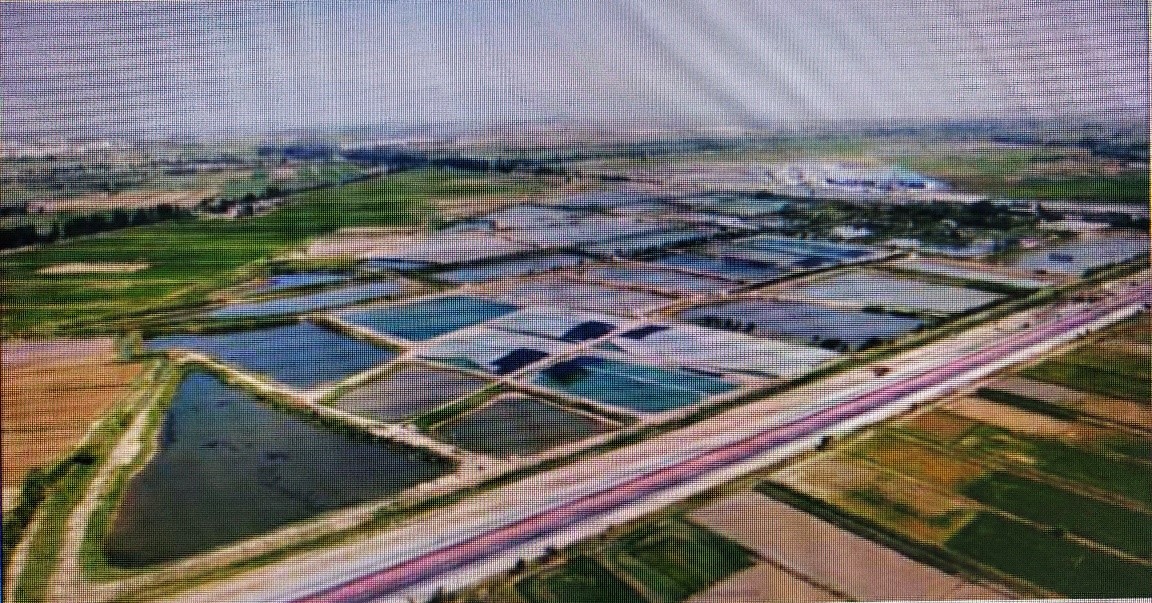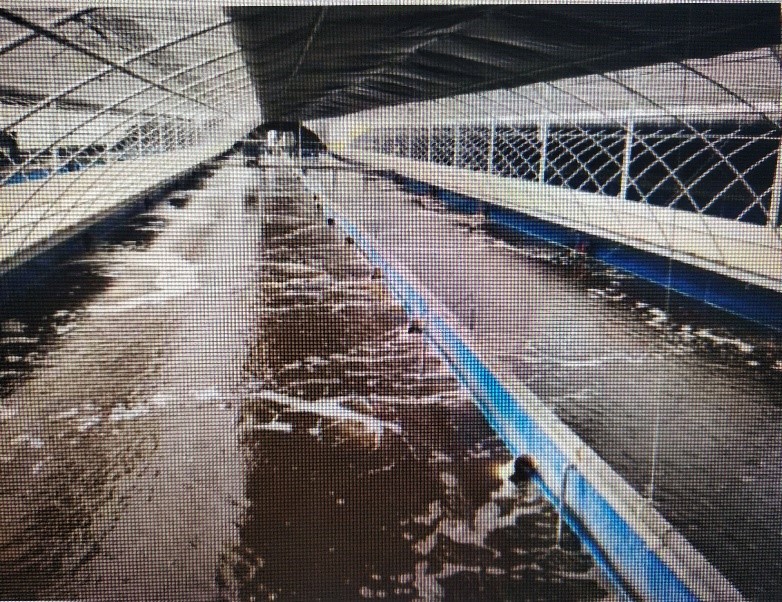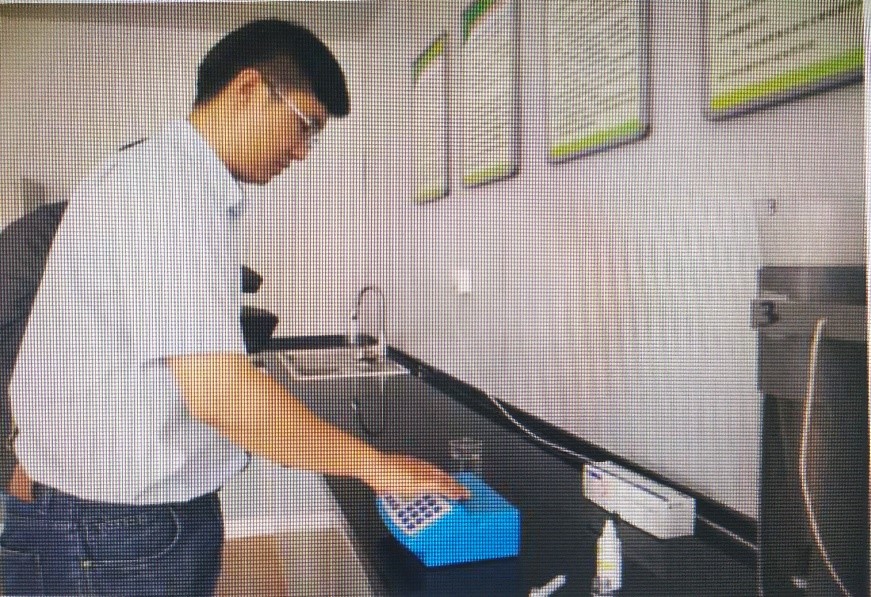Fisheries pollution control is a central and tricky issue in managing the water sources of the Yellow River. How can we prevent aquaculture from discharging a single drop of wastewater into the Yellow River? Well, a team from Tsinghua University did it in Ningxia !

Aquaculture base in Ningxia is spread across a complex, intertwined water system.
In August 2020, whiteleg shrimp, California bass, and other southern fish species appeared in large numbers on the market in Helan County. The improved water resources have helped farmers to engage in efficient aquaculture production. This giant leap from the inability to farm southern fish species has improved farmers' incomes and living conditions. The zero discharge of aquaculture wastewater helps keep the Mother River healthy.
During fish farming, ammonia nitrogen is produced from excrement, fertilizer and residual bait. Excess ammonia nitrogen produces nitrite, which can lead to lower immunity of aquatic organisms, resulting in lower intake, slower growth and greater susceptibility to disease. The southern reliance on water exchange to improve aquaculture water quality is not feasible in Ningxia, which relies on the water resources of the Yellow River. One reason is that water resources in Ningxia are not as abundant. Another reason is that the exchanged aquaculture water will eventually be discharged into the Yellow River. The only direction to develop aquaculture in Ningxia is to regulate the water during the farming process to avoid the accumulation of harmful components such as ammonia nitrogen and nitrite.

A factory breeding workshop
Ningxia's Tianrong Group once introduced foreign technology for the culture of white leg shrimp, but they did not succeed, resulting in a loss of 2.6 million yuan. No coincidence, Heilan County Xinming Aquaculture Company had tried to breed 50,000 California perch, but only 2,000 survived.
After understanding the situation, the Agricultural and Rural Bureau recommended Professor Yunling Duan and his team from the State Key Laboratory of Hydroscience and Engineering of Tsinghua University to the two enterprises. The team was stationed in Ningxia in 2018, focusing on water quality regulation of aquaculture water bodies and wastewater treatment in livestock breeding process. After two years of dedicated research, the team has made significant breakthroughs in aquaculture wastewater treatment, water quality development in factory water bodies, and environmental development in livestock farming. The use of immobilized microbial technology effectively degraded pollutants in the water body, which in turn solved the pollution barrier caused by high-density aquaculture, making it possible to recycle white shrimp in high-density aquaculture and aquaculture water bodies. As a result, the survival rate of white-footed shrimp reached 97.5%, with an annual production of more than three thousand kilograms. This factory aquaculture water treatment was applied not only to shrimp farming plants, but also to bass and Yellow River catfish farming. The application of this water treatment helped achieve zero discharge of aquaculture wastewater and eliminated a key constraint to the development of quality aquaculture in Ningxia.

Ph.D. Haoxuan Jin is testing the quality of the water sample
"Any fish species from Ningxia can be cultured with this water treatment technology. It only needs to adjust the microbial carrier to ensure the metabolism of different bacteria and create microcirculation in the water body. The treated water body is recyclable and farmers only need to replenish the evaporation," said Dr. Jin Haoxuan. This water treatment technology will be widely promoted to aquaculture farmers.
In June 2020, President Xi stated that Ningxia should strive to become a leading region in ecological protection and high-quality development within the Yellow River basin. President Xi also pointed out that Ningxia should adopt water-saving technologies and actively develop high-value water-saving planting and breeding industries to protect the water resources of the Yellow River. Professor Yunling Duan and his team focus on the practical problems of water pollution and agriculture in Ningxia, using research and innovation to help revitalize the economy and people of the society. Their solutions also strengthen the technological foundation for Ningxia's high-quality development strategy. The team's solutions have opened a new path to protect the water resources of the Yellow River in Ningxia's war on poverty and pollution prevention and treatment.